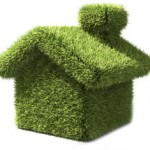 Design and Remodel For a More Sustainable Home – Top 10 Ideas
Design and Remodel For a More Sustainable Home – Top 10 Ideas
Green or sustainable remodeling provides an opportunity to adapt your home to your future needs and changing lifestyle, while lowering energy and maintenance costs by creating a healthier home environment. It’s also a way to reduce waste and pollution.
But just what is “green remodeling?” It’s a responsible way to minimize your impact on the environment through saving water and energy during the remodeling process by reusing and recycling construction materials, using construction materials with recycled content, reducing indoor pollutants, and lowering maintenance needs and costs while increasing the durability and life of your home. Additional benefits are also available by using local manufacturers and suppliers of resource-efficient building materials.
Here are 10 tips to use when “going green in Florida:”
- Set your goals and priorities – What can you do to reduce the impact on the environment and what will it cost? Using sustainable products and practices will sometimes cost less (utilizing re-used or salvage materials), about the same (safer paints, carpets, adhesives and finishes), or more than conventional products. Some choices costing more initially may save money in the long run by reducing energy costs and lasting longer. Bottom line – do the things that are important to you and are within your budget.
- Salvage and reuse existing materials. Many communities now have architectural salvage businesses stocked with the materials you may need for your remodeling project. Spend a few hours familiarizing yourself with what’s available locally. Reclaimed building materials can provide cost savings, quality and durability while diverting waste from landfills.
- Consider energy efficiency. Saving energy is a smart investment. When buying new high-efficiency appliances, look for the Energy Star® label. Add insulation. Seal air leaks. Install double glazed windows. And save water by using high-efficiency washers, dishwashers and landscape management systems.
- Take the long-term view. Remodeling using energy-efficient lights, appliances and weatherization while maximizing space and water usage may cost a bit more initially, but can pay off in less time than you might think. Do your research with an eye toward durability and future savings.
- Utilize local companies. Not only manufacturers, but salvage companies as well. You’ll reduce the impact by transporting goods from long distances and the money you spend will help support your community, create jobs and strengthening your local economy.
- Check for tax credits and cash incentives for improving efficiency and installing renewable energy equipment and materials.
- Use rapidly renewable resources, i.e. products made from resources that regenerate quickly, less than 10 years, such as bamboo, straw, poplar wood or cork and wool. Petroleum-based or mineral-based resources are not renewable at all.
- Retain existing landscaping that provides shady energy savings. If smaller trees are in the way of your project, consider moving them or planting replacements after construction. They add to the value of your property, help manage storm water runoff and improve air quality.
- Install rainwater-harvesting systems. We live in Florida. It rains. Use what falls from the sky. Channel rainwater from rooftops to storage containers for landscape irrigation, and avoid using relatively expensive treated drinking water for watering lawns and plants.
- Install, or at least pre-plumb for solar water heating. Use the sun’s heat to pre-heat your water. Supplement a standard hot water heater and store for later use. If the initial cost of a solar system exceeds your current budget, install insulated pipes to your water heating area for future solar installation. This especially applies when extensively remodeling the interior of a home. The most cost-effective time to install pre-plumbing is during construction.
These are just a few of the many things you can do to “go green,” and utilize sustainable products and building methods. Check locally for financial incentives for energy efficient remodeling from “energy trusts” and tax credits. Check also for local salvage suppliers, contractors and vendors specializing in sustainable construction and remodeling.
Hounchell Real Estate-RE/MAX Metro is the leader in general real estate, pre-foreclosure, short sale and foreclosure markets in the Pinellas County area. Contact us today at 727-642-9107.
Leave a Reply